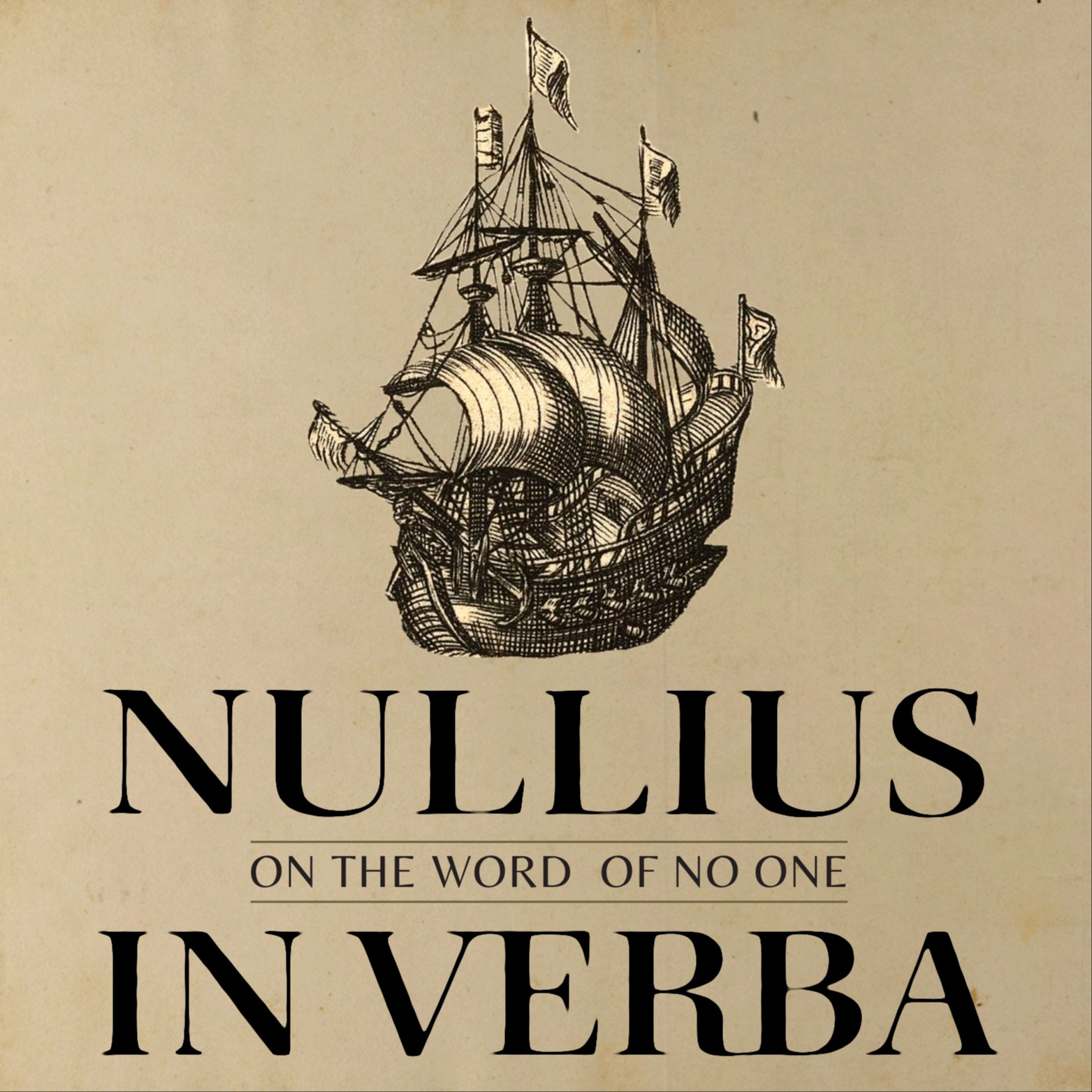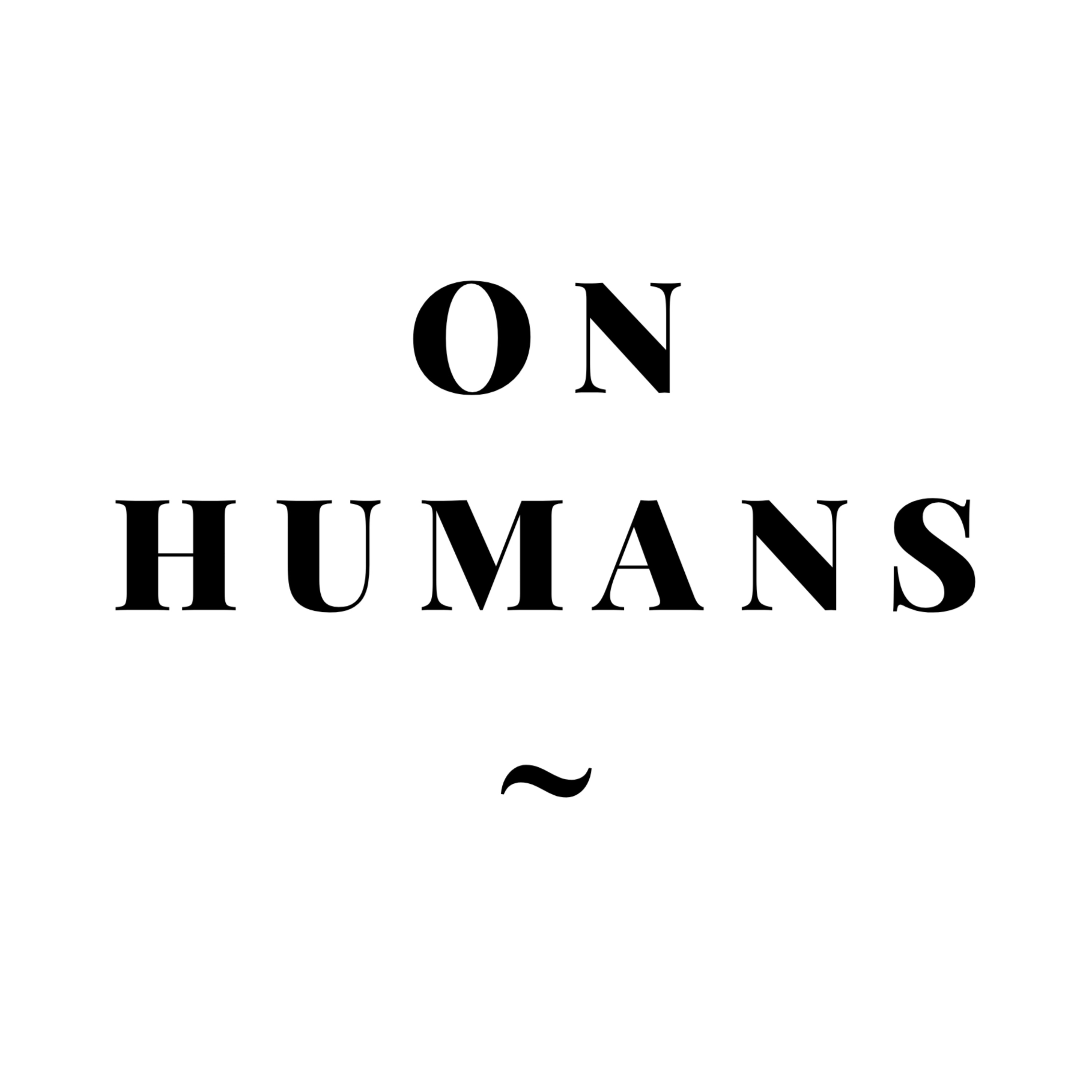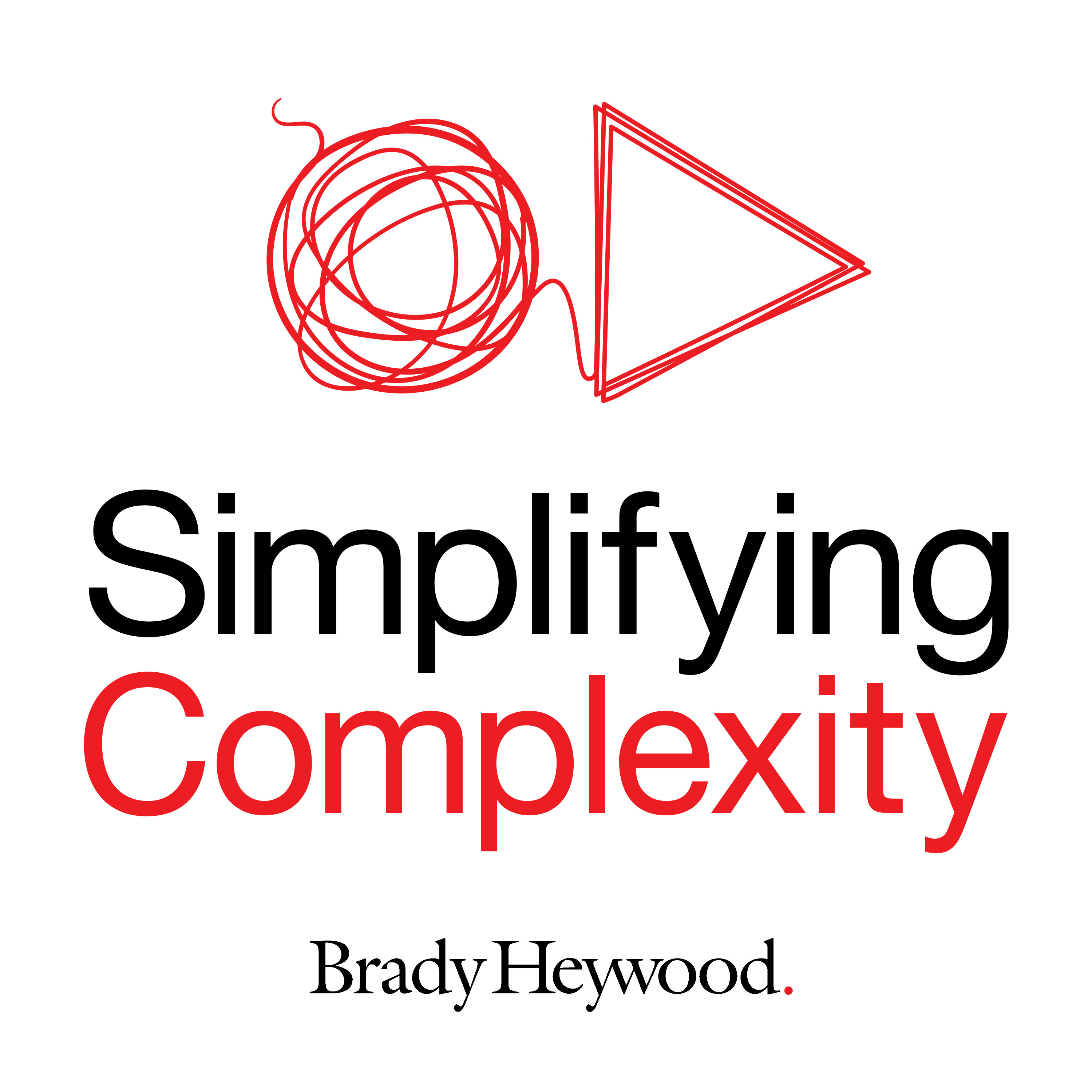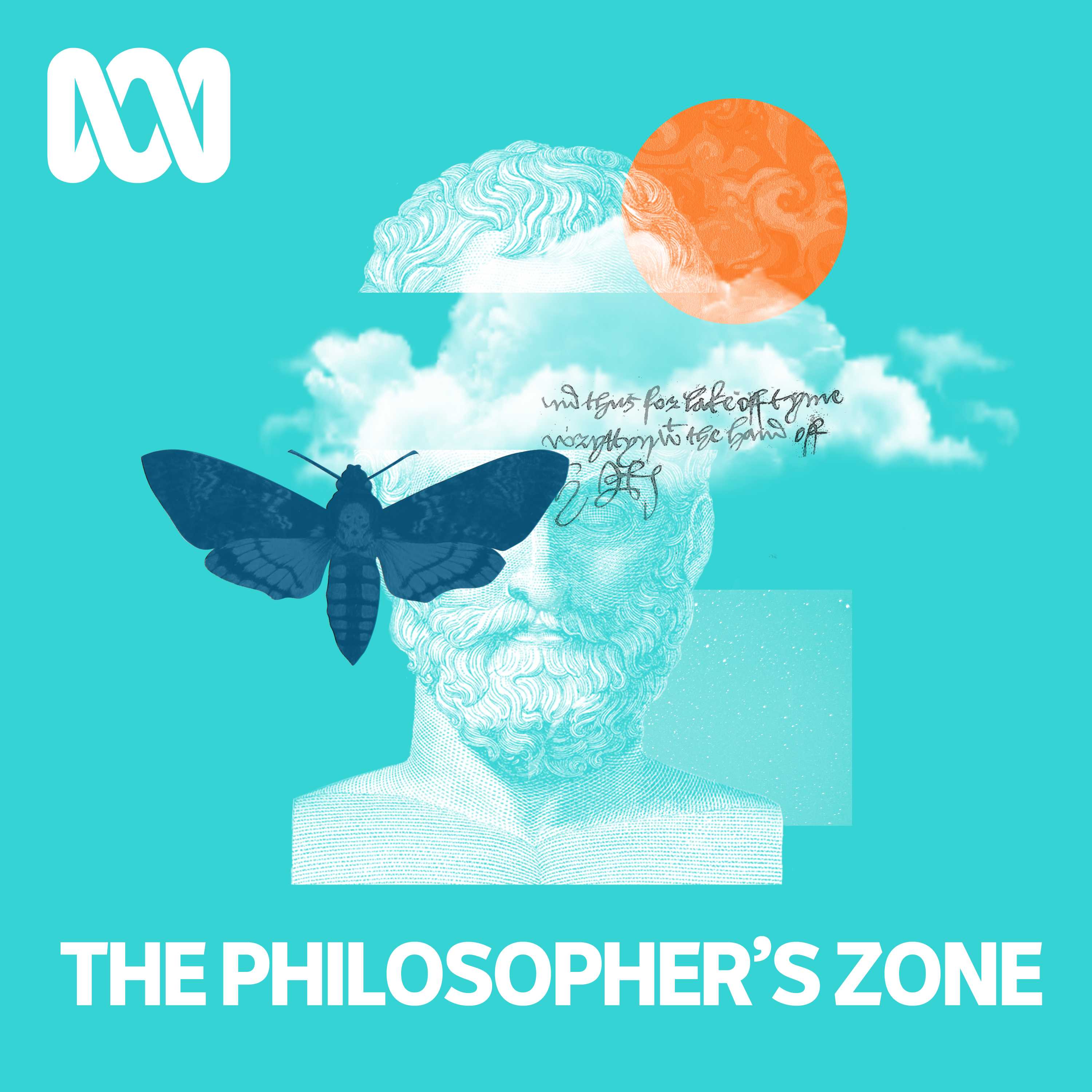
The HPS Podcast - Conversations from History, Philosophy and Social Studies of Science
Leading scholars in History, Philosophy and Social Studies of Science (HPS) introduce contemporary topics for a general audience. Developed by graduate students from the HPS program at the University of Melbourne.
Lead Hosts: Thomas Spiteri (2025) and Samara Greenwood (2023-2024).
Season Five is now here! Episodes released weekly. More information on the podcast can be found at hpsunimelb.org
The HPS Podcast - Conversations from History, Philosophy and Social Studies of Science
S2 Ep 7 - Ian Hesketh on 'Science History in Science'
This week's guest is Ian Hesketh, an intellectual historian and historian of science at the University of Queensland. His work in HPS revolves around 19th century scientific practices and their intricacies. He works to situate this science not only in its temporal history, but to delve into the ways in which the practice itself helped to form the science of the day.
He joins the podcast to discuss how scientific and historical writing practices can effect the way in which science itself is shaped, as well as the rich tradition of science history present in the discipline of science itself. To demonstrate how the writing of science history can shape how science is produced, he turns to the Darwinian Revolution. Darwin was not simply a scientist, but was well versed in the history of his field as well as its changing nature, a fact integral to his development of the theory of evolution.
Transcript of the episode is now available here: https://www.hpsunimelb.org/post/ian-hesketh-transcript-s2-e7
Resources related to the episode:
Book: The Science of History in Victorian Britain: Making the Past Speak https://www.jstor.org/stable/j.ctt1dnppv7
Book: Imagining the Darwinian Revolution: Historical Narratives of Evolution from the Nineteenth Century to the Present https://www.jstor.org/stable/j.ctv2k4fwpr
Ian's Chapter: Imagining the Darwinian Revolution https://espace.library.uq.edu.au/view/UQ:005e875
Article: From Copernicus to Darwin to you: history and the meaning(s) of evolution https://espace.library.uq.edu.au/view/UQ:4d9ee19
Thanks for listening to The HPS Podcast. You can find more about us on our website, Bluesky, Instagram and Facebook feeds.
This podcast would not be possible without the support of School of Historical and Philosophical Studies at the University of Melbourne and the Hansen Little Public Humanities Grant scheme.
Music by ComaStudio.
Website HPS Podcast | hpsunimelb.org
Hi all. From the team here at the HPS Podcast, we welcome you to a new episode. I’m Indigo Keel your host, and my co-producer is Samara Greenwood. Today we welcome Ian Hesketh from the University of Queensland to the podcast. Ian explores with us the notion that science entails history writing and that scientific discoveries and developments are embedded in both explicit and implicit historical narratives of science. He uses the example of the Darwinian Revolution and how this scientific revolution was primed by a series of cultural and political revolutions.
Indigo Keel: Hi Ian, welcome to the HPS podcast.
Ian Hesketh: Hi, thanks for having me.
Indigo Keel: So, we will start as we always do, which is how did you come to HPS?
Ian Hesketh: Well, I came to HPS sort of by accident. I think that's probably quite typical of a lot of HPS scholars. I started out majoring in history and minoring in political science at a small university college in Kelowna, British Columbia. And I didn't have any sort of... Great interest in a particular historical subject. I was really just interested in history in general, and I took all these different kinds of history subjects. I tended to just kind of take the courses that were offered by the profs that I liked. And I took this one class on Gilded Age America that was offered by James Hull.
The way Hull taught the class was quite a bit different than other courses I had encountered in history at the time, in part because alongside sort of typical topics that are pursued in history classes, such as political, social, and cultural themes, he also focused on intellectual and scientific aspects of that era, end of the 19th century, beginning of 20th century America. And I found that really fascinating and I really loved the class. Because of that, I started to take more classes that he offered. What I didn't know at the time but came to subsequently know is that he really specialized in the history of science and technology and his other courses tended to be more directly in that area.
So I took this class from him called history of modern science. And it was the sweeping history of science from basically the 20th century. It was fairly general, but it was also focused on particular subjects. In one of the subjects that we focused on, and one that really inspired me was this focus on Darwin and the Darwinian revolution. What was interesting about that part of the course was that Hull had us read Darwin's origin of species, really from cover to cover.
We spent several weeks kind of discussing the book, which was really eye-opening. And what I really liked was that we read it like any other piece of literature that you'd read in a history class or an English lit class. We weren't reading it as if it was some sort of massively important text that we couldn't critically examine, which I found really interesting. The other thing was that he had us read a particular edition of The Origin. I suppose many of your listeners will know that Darwin ultimately wrote six editions of The Origin of Species, and each edition kind of included more and more extensive revision based on Darwin's various attempts to take into account criticisms and new developments.
This ultimately led him to make quite significant alterations, such that the first edition is really different from the sixth. And Hall had us read the sixth edition, because he kind of found that the way Darwin changed his theory based on contemporary events and debate was important for understanding how evolution was established as a science at the time.
He stressed in particular how the contemporary debate on the age of the earth influenced many of Darwin's various revisions to his theory, such that he began to take into account more Lamarckian mechanisms that he had in theory rejected in the first edition.
This kind of blew my mind because it made me realize that there's no such thing as a definitive statement on a scientific topic, even by individual scientists, and that scientific texts are in some ways living documents.
So, I really came away from that course with a profound appreciation of, of the human aspects of scientific development. And this led me to be particularly interested in the literary dimensions of science.
Also, after taking the course, I kind of like realized I'd found a subject that I really loved and then, you know, started taking all kinds of courses related to the history of science.
I took courses in philosophy of science and then I ended up pursuing postgraduate study at York University where Bernie Lightman was teaching the history of science. And so I studied with him, particularly the history of Victorian science. And there I was introduced more thoroughly into the social and cultural dimensions of science, particularly in the Victorian period.
The other thing is that while I was at York, Bernie Lightman became editor of Isis, which is the flagship journal for the history of science, and it moved to York. And that kind of gave me these opportunities to be more thoroughly kind of embedded in the history of science community by being an editorial assistant on the journal.
At that point, History of science was what I wanted to do and that's what I've pursued ever since.
Indigo Keel: Lovely. A good teacher can make all the difference! And now that you’re in it, what do you see as the value of HPS?
Ian Hesketh: Well, that's a trickier question to answer. I mean, I think there's inherent value in studying, you know, any subject of history and philosophy.
But for me, what's so valuable about history and philosophy of science is that science is an incredibly important and powerful form of knowledge. And it's one that can be far too easily taken for granted or even ignored as something that's only for specialized scientists who are deemed to be the only ones who can truly understand it.
What the history and philosophy of science can offer is a certain amount of scientific literacy of sciences various specialized domains. But I think it also offers the basic recognition that science itself is a human product, and therefore is subject to the same sorts of social and cultural forces that influence any other human activity.
So something like objectivity, for instance, which is often promoted as the bedrock of scientific knowledge and the scientific method, I mean, it can be shown as itself having a history as Lorraine Daston and Peter Galison carefully unpack in their book on the topic. And so I kind of like to think of HPS as pulling back the curtain a little bit in order to show some of the key aspects of science making that are hidden behind scientific specialisms and jargon that help to keep it at a distance from most people.
And in an age of epidemics and environmental catastrophes, when science is being called upon to make sense of what is happening and advise on social policy, it's really important to be able to have a critical understanding on how such knowledge is being created and used. So there's kind of an inherent good and value in studying it, but also there's, you know, presentist reasons to be studying the history and philosophy of science, especially in our current period of crises.
Indigo Keel: Brilliant. And the more people we can show the inner working of science to, the better! And what topic did you want to talk about today?
Ian Hesketh: One issue that's always interested me is the way that scientific discoveries and novel theories are communicated to scientific peers and to the public at large, and how such forms of communication end up working to shape science itself.
For instance, it turns out that a key dimension in the communication and dissemination of science is history and history writing. By this, I don't mean histories of science written by historians, but rather histories of science that are embedded right in scientific writing itself. There's a really good article that explores this issue in a recent issue of Isis by the historian of science and medicine, Adrian Wilson. And the article is entitled, Sciences, Imagined Pasts.
In the article, what Wilson seeks to do is to make a case for the argument that all science entails some form of history writing. And so he points out that this is often quite explicit. So for instance, in the 19th century, it was common practice to include a historical chapter at the beginning of a study that would present the history of the subject that one was writing about.
Charles Lyell, the geologist, famously included a very long first chapter on the history of geological thought in his book On the Principles of Geology, which put forward a particular view of geological processes. So he used this history of geological thought to frame his own sort of analysis of geological principles.
A more common and recent version of this would be literature reviews that often appear at the beginning of scientific studies. And so these sorts of histories and lit reviews are produced in order to put the newly proposed theory or discovery into a particular historical framework, one that is shown as having been built on previous work in the area while overcoming previous problems that have arisen.
There's also more implicit forms of history that are embedded in science writing as well, and they're a bit more complicated to describe in this context and have to do with subtle references to historical figures, theories, and methods. The point really, though, is that when you start looking for historical references in science writing, you start to find them everywhere.
What you realize is that they're really key in building up what Wilson calls an imagined history of science. And this imagined history of science then becomes central to the way in which subsequent science is framed and communicated. And not just by the scientists, but by subsequent historians and philosophers.
So these imagined histories, they're not by any means fully formed. And they're really there just to frame the kind of scientific discoveries that are being presented. But they end up playing a fundamental role in shaping, you know, actual history that's written in subsequent years.
Indigo Keel: Interesting. It’s cool to see how history and science have always been somewhat entangled. Why do you feel that this is such an important topic to focus on?
Ian Hesketh: Well, I think it's an important topic in part because this is really an understudied dimension of science. So I think it's important to consider for that reason. You know, we haven't really done a lot of work on the way history is kind of built into scientific writing. But I also think it's, it gives us a better insight into how scientists participate in creating history and help to shape how their work is received at the time, but then also down through the generations.
They're ultimately situating their work within what is an imagined historical framework that can play a role in shaping not just how subsequent science develops, but also how we come to understand that history. So one of the things we can do from a history and philosophy of science perspective is, is come to recognize this imaginative process that's embedded in science writing.
And in theory we'll avoid being beholden to simply reproducing the historical writing and thinking of scientists when we discuss their work. So I guess my main takeaway about this would be to say that history and history writing shouldn't just be seen as something that historians do after the fact to make sense of the past.
In some ways, history writing is built right into the practices of communicating science. And so understanding how it's constructed and used gives us further insight into the scientific practice. So I suppose for me, that would be the kind of main issue as to why this is an important topic. It really gives us insight into science itself and how science is conducted.
Indigo Keel: Yeah absolutely. I’m hoping you can provide an example of how this plays out in reality?
Ian Hesketh: This example kind of goes back to my earlier discussion about Darwin because, um, one of the areas that I've been working on is history writing in Darwin's work. And also it's kind of embedded in this general way in which we think about Darwin's work, which is often informed by the term of the Darwinian revolution.
So in his treatise on the Origin of Species, you get both explicit and implicit histories in his presentation of evolution. And here James Hull's interest in the different additions of the origin comes into play.
In terms of explicit, is that in the third and subsequent editions of The Origin of Species, Darwin included as a first chapter, what he called an historical sketch of the recent progress of opinion on the origin of species. And this was essentially a brief history of scientific thought on the question of evolution.
Now there's some debate as to why he decided to include such a sketch, and part of the issue is that many were critical when the first edition came out that Darwin hadn't really spent enough time discussing previous views about transmutation. And there were some questions about his priority with regard to his chief mechanisms of natural selection.
So the sketch kind of simultaneously dealt with those two issues. It gave a brief history of scientific thought on the question of evolutionary development, and it also discussed previous thinkers who'd anticipated without fully articulating the theory of natural selection. And so in this very explicit way, Darwin situated his intervention within a history of science that placed his work at the end point of a gradual scientific process of inquiry and error. And it ultimately resulted in his own work on the subject. So it was kind of a way of setting up his own theory of evolution as progressively building on these previous views. There are, of course, more implicit forms of history that one can discern in the origin of species.
In the first edition and in subsequent editions, Darwin has epigrams that come after the title page. In the first edition, he quotes from William Whewell, who was a 19th century historian of science and a scientist in his own right, as well as the early modern philosopher of science, Francis Bacon.
And so he quotes these two really important intellectual giants in the history of science. The quotations themselves are included basically to give a sign that the origin is very much following in this English tradition of science. And so using those epigrams kind of gives the reader that sense that, this book is actually meant to be a part of the tradition that includes Bacon and Whewell.
His introduction also includes a personal history of his engagement with the subject matter, which shows him to be above all patient. And that's because he kind of goes into detail about the 20 years of patient research that he had engaged in, in examining this difficult question of the origin of species, and that he was only forced to publish after, you know, spending all of this time, not because he was quite ready, but because of ill health and because Alfred Russel Wallace had also come to similar conclusions and had informed Darwin of them. So Darwin felt that now he had to present his extensive research on the subject.
So the point was to suggest that he had not done this in a way that that was too quick, that he had spent the requisite amount of time patiently accumulating detail and thinking before he finally had to present his work on this potentially very dangerous topic.
He presented himself in this as this very patient and careful man of science, which placed him in a tradition of other scientific thinkers, such as Newton, who is subtly alluded to, uh, along with this theory of gravity, which kind of made Darwin appear much like this Newtonian type figure. And perhaps most importantly, Darwin subtly seeks to argue that he was himself contributing to a revolution in natural history.
This very much fit in well with one particularly dominant conception of the history of science at the time, which suggested that science proceeded by gradual development, and then thanks to the patient intervention of a heroic individual, that science was able to advance by a sudden revolutionary leap, whereby a new epoch of scientific development would become possible.
So throughout the book, Darwin makes subtle allusions to this new epoch of science that his theory Is going to engender, so there's kind of this interesting dual history of science that's being presented one of gradualism and one of revolutionary leaps and Darwin kind of presents his theory as being a part of both of those two ways of thinking about the history of science.
Now historians often use this notion of the Darwinian revolution to explain, you know, all of the changes that were brought about by Darwin's conception and presentation of evolution, but a recognition of Darwin's own imagined history of science. It suggests that the very idea of the Darwinian revolution as a historical narrative was built right into the origin of species itself, in both the implicit and the explicit forms of historical writing that it included.
We like to think of the Darwinian revolution as being this kind of category that historians have invented to make sense of what was happening. But if you look at the historical forms that appear within the origin of species, You can see that Darwin has already kind of presented those materials in an imagined history of science.
And if you look at reviews of the book and the way in which interpreters were considering Darwinian evolution after the origin of species, this idea of Darwin enacting a revolution is very much picked up soon after the book is published. And it's not really just historians in the present that are making a case for a Darwinian revolution, but Darwin himself and those much closer to his time period.
Indigo Keel: And you’ve just been involved with releasing a book on this topic, haven’t you?
Ian Hesketh: Yes, I organized this symposium in the days before COVID, which included many experts in Darwin studies. That was held at the University of Queensland in Brisbane, I think, in 2018 now, and an edited collection eventually was published as a result. And it very much was on this theme of sort of imagining histories of science in relation to the Darwinian revolution.
That has recently been published by the University of Pittsburgh press. And so there are 15 chapters in that book. My chapter looks specifically at the way in which Darwin attempted to kind of build into his book on the origin of species, that kind of historical understanding of how science develops and how his own work really was meant to enact a revolution in science and how that followed a particular direction in historiography.
Other chapters in the book kind of carry the narrative forward by looking at other historical contexts for the reception of Darwin and the so-called Darwinian revolution. Chapters cover the end of the 19th century and then through into the 20th century, where we kind of look at the different ways in which the Darwinian revolution is reimagined in the 20th century in different sort of political and social contexts. And how different kind of narratives within the history of science end up being kind of informed by imagined histories produced by both critics of Darwin and his disciples.
Other kind of narratives that come out of this include the idea of the modern synthesis. Which is this general narrative in the history of science, which sees Darwinian evolution, particularly the theory of natural selection, being combined with Mendelian genetics in the 1940s and 1950s. And that evolution from a variety of different specializations conformed to this kind of idea of a modern synthesis.
What we see especially with that is that, well, that actually is kind of a narrative itself of how evolution is developed over time, produced by evolutionists at that time, who were presenting a particular view of both the history of science and evolution. And that then itself ends up shaping the way in which evolutionists end up thinking about how they go about doing their science.
So the book kind of attempted to really extend this argument about imagining the Darwinian revolution. Not just in the 19th century, but right through to the 20th century in different kind of social and political contexts.
Indigo Keel: Amazing.
Well, thank you so much for coming on the podcast today, Ian.
Ian Hesketh: Thanks so much for having me.
Thank you all for listening to the second season of the HPS podcast, where we discuss all things history, philosophy, and social studies of science. Our guest today was Ian Hesketh.
We want to thank the School of Historical and Philosophical Studies at the University of Melbourne for their support. To learn more, check out our website at hpsunimelb.org. There, you can also find links to our blog, our social media, and show notes for today's topic. I'm Indigo Keel and my co producer is Samara Greenwood.
We look forward to having you back next time.
Podcasts we love
Check out these other fine podcasts recommended by us, not an algorithm.

The P-Value Podcast
Rachael Brown
Let's Talk SciComm
Unimelb SciComm
History and Philosophy of the Language Sciences
James McElvenny
In Our Time: Science
BBC Radio 4
Time to Eat the Dogs
Michael Robinson: historian of science and exploration
Nullius in Verba
Smriti Mehta and Daniël Lakens
The Disappearing Spoon: a science history podcast with Sam Kean
Sam Kean, Bleav
History of Philosophy Without Any Gaps
Peter Adamson
Narrative Now
Narrative Now
On Humans
Ilari Mäkelä
